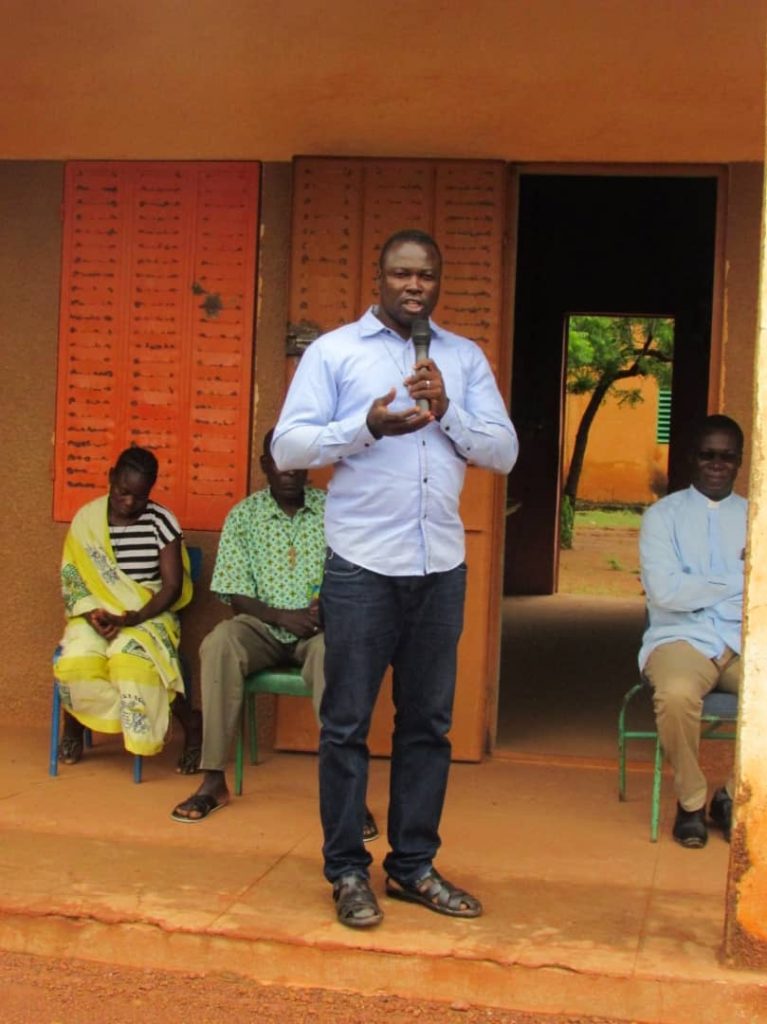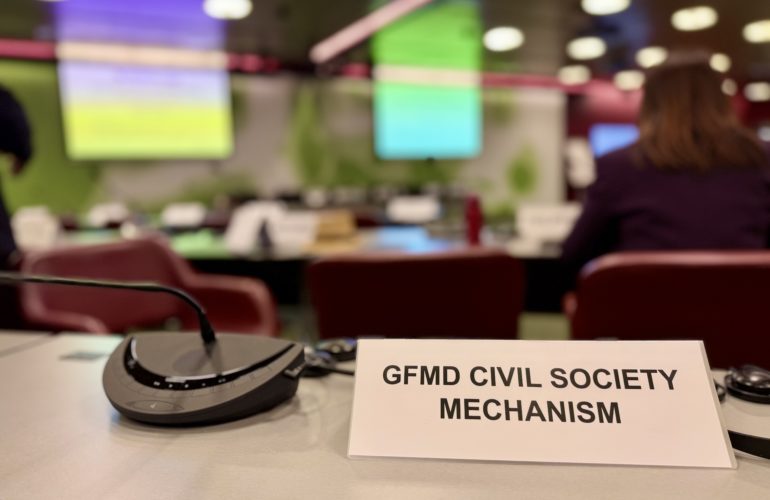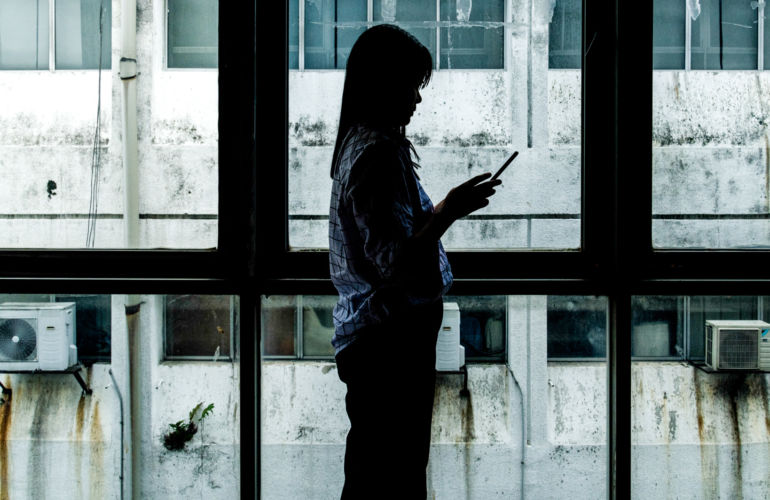ICMC’s New Joint Project Brings Education to Displaced Children in Burkina Faso
ICMC and its national member organization in Burkina Faso have launched a project to protect internally displaced children affected by conflict and the COVID-19 pandemic.

Over the past two years, rapidly escalating violence by armed groups and jihadists in the Sahel region has led to nearly one million internally displaced people in Burkina Faso, West Africa. The COVID-19 crisis has been a second blow to the country, leaving hundreds of thousands of people in extreme vulnerability.
In response to this situation, the International Catholic Migration Commission and the Episcopal Commission for the Pastoral Care of Migrants and Refugees (CEPMR) of Burkina Faso have initiated a joint program to help protect displaced children.
Launched in September 2020 and based in the North of the country in the Diocese of Ouahigouya, the project aims to provide a safe environment for children forced to flee violence in the region.
“Those who flee come from impoverished areas. Most of them are subsistence farmers and herders. Their houses have been burnt to the ground; their cattle have been stolen. They fled empty-handed, traveling as they could on donkeys’ backs or by wagon,” says Fr. Rodrigue Fidèle Sanon, project coordinator and Secretary-General of the Episcopal Commission for the Pastoral Care of Migrants and Refugees of Burkina Faso.













Children make up over 60% of the more than one million internally displaced people in Burkina Faso, whose vulnerability has been heightened by the COVID-19 crisis. The burden of these two crises falls disproportionately on women and girls of whom more than one million now face increased sexual violence, hunger and water shortage due to the coronavirus and violence.
The ICMC/CEPMR joint project aims to provide displaced children with education, health care, psychosocial care and documentation assistance. Eighty boys and girls between the ages of seven and 15 unable to attend school since being forced to flee are taking part in the project.
A Child-Friendly Space where the children can learn and play in safety has been created. There, children participate in educational activities that serve as informal schooling until they can integrate the formal school system. The Space also provides recreational activities, hygiene and sanitation training, vaccination campaigns and medical check-ups. Once schools reopen, 30 children will receive scholarships to attend local schools.
Social workers at the Child-Friendly Space provide psychosocial counseling. They identify those in particularly vulnerable situations or suffering from trauma and refer them to mental health professionals. When possible, the children’s parents will also participate in discussion groups on positive parenting, hygiene and children’s rights. The project also helps families who lack proper documentation to obtain it so that they can access available social services.
The Space also serves as a childcare facility. Most internally displaced adults in Burkina Faso are women and the need to care for their children often prevents them from working to provide for their families. The Child-Friendly Spaces gives them a chance to become self-sufficient.
“The project has been well received by the population, but the needs are huge,” says Fr. Sanon. Among them, he highlights the need for adequate shelter for families as very few have access to proper tents.
“ICMC is very concerned about the number of internally displaced persons in Burkina Faso and the suffering that violence and persecution has caused for families, many of whom lack even the minimal needs for daily living, says ICMC Secretary General Msgr. Robert J. Vitillo.
“We are grateful for the partnership with the Catholic Church response to these needy families,” he adds. “This is the kind of welcome that Jesus asked us to give in all His preaching and it is with the same Gospel message that Pope Francis constantly encourages us to protect refugees, migrants and internally displaced persons in all parts of the world.”
The ICMC/CEPMR joint project for internally displaced children in Burkina Faso is made possible thanks to the Raskob Foundation, which supports Catholic Church-based programs in the U.S. and across the world.



